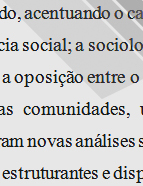

................................
Fortunato de Almeida (1869-1933) distinguished himself by the monumentality of his work as a whole. With a legal background (FDUC), he was a high school history teacher and sympathised with João Franco and the ideals of the Estado Novo, together with Alfredo Pimenta (1882-1950), António Sardinha (1888-1925), Caetano Beirão (1892-1968) and João Ameal (1902-1982). His História de Portugal (6 vols., 1922-1929), written by a single author, draws almost exclusively on bibliographical sources and adds nothing new, as is the case with his contributions to Damião Peres’ História de Portugal and História das Instituições em Portugal (1903). His História da Igreja (History of the Church, 8 vols., 1910-1928) is his most important contribution, drawing mainly on documents already compiled and published “scattered across hundreds of volumes” and limiting his consultation of archives to “specific periods and subjects”. It exhaustively covers the evolution of Christianity in the Peninsula, the clergy and its constitution, the organisation and rules of monasteries, ecclesiastical publications, relations between the Church and political power, and councils, and also covers overseas territories. All volumes have documentary appendices and the notes are abundant and erudite.
Torquato Brochado de Sousa Soares (1903-1988), a medievalist, was the most important historian tout court of the period. After enrolling in the Historical-Geographical Sciences course (FLUC), he requested a transfer to FLUP, where he completed his degree (1924) and remained as a lecturer, also teaching at the Alexandre Herculano and Rodrigues de Freitas secondary schools. He came to Coimbra to prepare his doctorate (FLUC) as a scholarship holder at the Institute for High Culture, under the patronage of Paulo Merêa and Damião Peres. In 1935, with a thesis on the Municipal Organisation of the City of Porto during the Middle Ages, he obtained his doctorate in Historical Sciences. He pursued his teaching career at FLUC, where he founded the Revista Portuguesa de História (Portuguese History Journal) in 1941, responsible for reproducing and disseminating medieval documents and , as evidenced by his work As cortes Portuguesas (The Portuguese Courts) in 1943. He was a member of the Portuguese Academy of History, the Lisbon Academy of Sciences, the Lisbon Geographical Society, the Royal Academy of History of Madrid and the Royal Galician Academy. His aggregation and professorship exams (1962) marked his shift towards political and social history (“Reflexões sobre a origem e formação de Portugal” [Reflections on the origin and formation of Portugal]; “Antecedentes da Crise de 1580” [Background to the Crisis of 1580]). Between 1965 and 1970, he was the Rector’s delegate at the University of Luanda, where he founded the journal “Estudos de Humanidades” [Humanities Studies].
This work is financed by national funds through FCT - Foundation for Science and Technology, I.P, in the scope of the projects UIDB/04311/2020 and UIDP/04311/2020.
